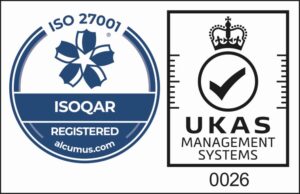The Role of IT MSPs in IT Governance and Risk Management
Effective IT governance and risk management are crucial components of a robust and secure IT environment. Organizations must establish clear policies, procedures, and controls to ensure that their IT operations align with business objectives, comply with regulations, and mitigate potential risks. However, managing IT governance and risk management can be complex and resource-intensive. This is where IT Managed Service Providers (MSPs) step in to play a pivotal role. Let’s delve into the significance of IT MSPs in IT governance and risk management and how they assist businesses in maintaining a secure and compliant IT landscape:
Understanding IT Governance and Risk Management:
IT governance involves the framework, processes, and policies that guide IT decisions and ensure that IT investments are aligned with business goals. Risk management, on the other hand, focuses on identifying, assessing, and mitigating potential risks that could impact IT systems, data, and operations.
The Role of IT MSPs:
- Policy and Process Development: MSPs work with businesses to establish comprehensive IT governance frameworks. They assist in developing IT policies, procedures, and guidelines that align IT activities with the organization’s overall strategy, ensuring consistency and adherence to industry standards.
- Risk Assessment and Mitigation: MSPs conduct risk assessments to identify potential vulnerabilities and threats within the IT infrastructure. They analyze existing controls, evaluate risks, and develop strategies to mitigate and manage these risks effectively.
- Compliance Management: Regulatory compliance is a critical aspect of IT governance. MSPs help businesses navigate complex regulatory landscapes such as GDPR, HIPAA, and others. They ensure that IT operations adhere to these regulations, reducing the risk of legal and financial consequences.
- Security Implementation: MSPs implement robust security measures to safeguard IT assets against cyber threats. This includes deploying firewalls, encryption, access controls, and intrusion detection systems to protect sensitive data and prevent unauthorized access.
- Incident Response Planning: In the event of a security breach or data breach, MSPs help businesses develop incident response plans. These plans outline steps to be taken to minimize the impact of an incident, restore operations, and communicate effectively with stakeholders.
- Vendor Risk Management: IT MSPs assist businesses in evaluating the risks associated with third-party vendors and service providers. They ensure that vendor relationships align with risk tolerance and compliance requirements.
- Continuous Monitoring: MSPs implement continuous monitoring solutions to detect anomalies and potential security breaches in real-time. This proactive approach helps identify and address threats before they escalate.
- Data Protection: MSPs help businesses establish data protection strategies, including data backup, encryption, and disaster recovery planning. These measures ensure data availability and integrity.
- Training and Education: MSPs provide training and education to employees to raise awareness about IT security best practices, policies, and procedures. This empowers employees to contribute to a secure IT environment.
Benefits of IT MSPs in IT Governance and Risk Management:
Engaging IT MSPs in IT governance and risk management offers several benefits to businesses:
- Expertise: MSPs bring specialized knowledge and experience in developing and implementing IT governance frameworks and risk management strategies.
- Resource Efficiency: MSPs alleviate the burden on internal IT teams by taking care of complex governance and risk management tasks.
- Compliance Confidence: MSPs ensure that IT operations adhere to relevant regulations, reducing the risk of non-compliance penalties.
- Proactive Security: MSPs implement advanced security measures, monitor for threats, and respond promptly to security incidents.
- Business Continuity: Effective risk management and incident response planning help maintain business continuity in the face of disruptions.
In conclusion, IT MSPs play an indispensable role in enhancing IT governance and risk management for businesses. By collaborating with MSPs, organizations can establish a strong IT governance framework, mitigate risks effectively, and ensure a secure and compliant IT environment, contributing to overall business success and resilience.




